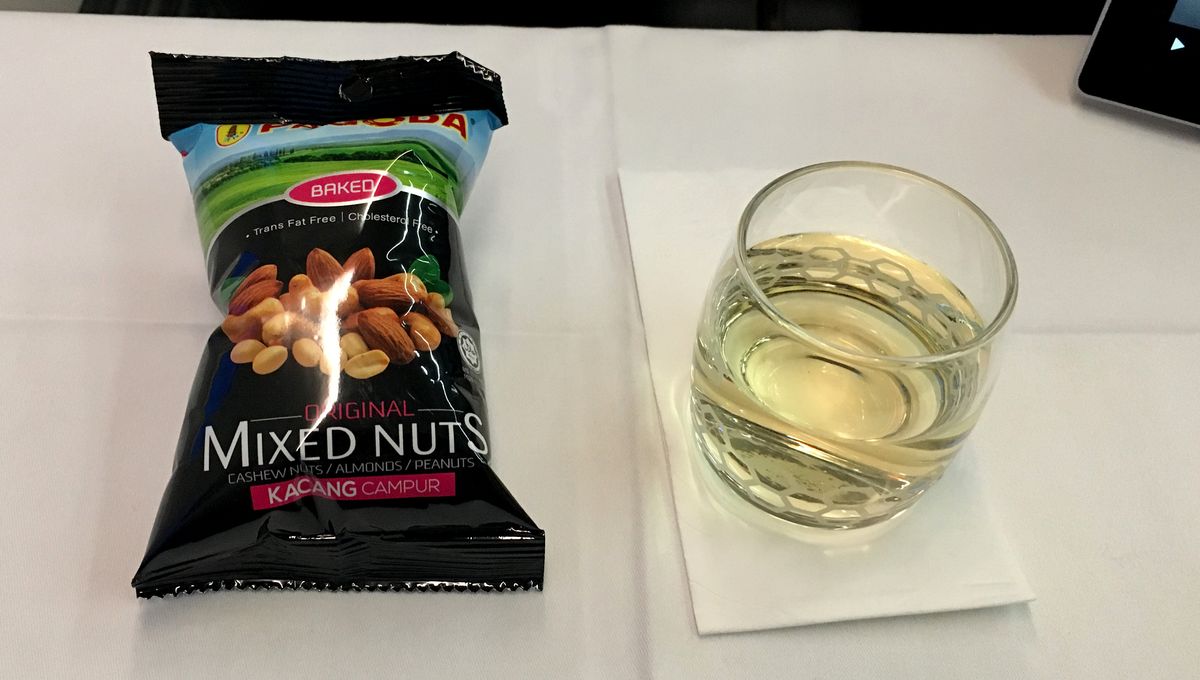
It’s widely assumed that flying poses a particular risk for those with nut allergies as the allergens can spread through the aircraft ventilation system, but a review of 40 years’ worth of scientific evidence has concluded that there’s no basis to this belief. Instead, the authors say, the main focus should be on cleaning and sanitizing surfaces such as tray tables to remove any traces of allergens.
Food allergies are not rare – a recent report from the UK Food Standards Agency found that 6 percent of adults have a food allergy, while Food Allergy Research & Education estimates the figure to be one in 10 in the USA. Peanut and tree nut allergies are the most common.
It’s important that any food allergy is taken seriously, and the most severe allergic reactions can be deadly. Anaphylaxis results when exposure to an allergen – sometimes only a miniscule amount – triggers a whole-body reaction in which large quantities of chemicals, including histamine, are suddenly released. The result can be swelling of the airways or tongue, breathing difficulties, and loss of consciousness.
Anaphylaxis requires rapid medical treatment, which is why people with known allergies carry adrenaline autoinjectors, often called EpiPens. These deliver a rapid dose of the hormone adrenaline (epinephrine), which helps keep the airways open and circulation going until someone can get to the hospital.
Because only small traces of nuts can be enough to trigger a reaction in people with allergies, it’s often thought that traveling on airplanes poses a particular risk. Peanuts are a classic in-flight snack, but there have long been fears that airborne allergens could be transmitted to passengers in different parts of the plane via the ventilation system.
A new study might help allay some of those fears, however, by finding that there’s really no evidence to support the idea that recirculated airplane air poses a threat.
“People shouldn’t be worried about what food is being transmitted in the air when they fly. We didn’t find any evidence that nut particles could travel through the cabin ventilation system on airplanes and cause reactions,” said first author Professor Paul Turner of Imperial College London in a statement seen by IFLScience.
Together with Nigel Dowdall of Aviation Medical Consultancy Limited, Turner was commissioned by the UK Civil Aviation Authority to systematically review published evidence going back to 1980.
In general, they found that the risk of an allergic reaction to aerosolized nut particles was low. Additionally, aircraft cabin ventilation systems actually exchange the air more frequently than systems in settings like classrooms and hospitals – every three to four minutes during a flight.
“The system is designed to create a controlled circular pattern of airflow, with air continuously extracted through vents at floor level. This results in air circulating across the aircraft, rather than along the cabin, which minimises the potential for spreading passenger-generated contaminants through the passenger cabin,” write Turner and Dowdall in their paper.
Modern commercial aircraft are also fitted with filters that effectively remove particles – including aerosolized food particles – from the air before it is recirculated.
That does not mean that those with severe allergies shouldn’t be wary on planes, however.
“The one thing people must do to protect themselves is to clean their seat area,” Turner said. “Allergenic food is really sticky, and can be found on seat surfaces, table tops, and seat-back entertainment screens. People touch these surfaces, and then the allergens can be transferred to their mouths.”
For airlines, the authors say, allowing passengers with allergies extra time to clean their surroundings would be a better approach than asking other passengers not to consume nuts during a flight, which may not reduce the risk of a reaction and can provide false reassurance. They note that the US Department of Transportation already requires airlines to give passengers with nut allergies priority boarding if requested.
This was echoed by Simon Williams, CEO Of Anaphylaxis UK: “A key take-home message is the importance of passengers cleaning their seat area, including the tray table and the seat-back entertainment system.”
The study is published in the journal Archives of Disease in Childhood.
Source Link: Nut Allergens Not Transmitted Through Air On Planes, Finds Review Of 40 Years Of Data